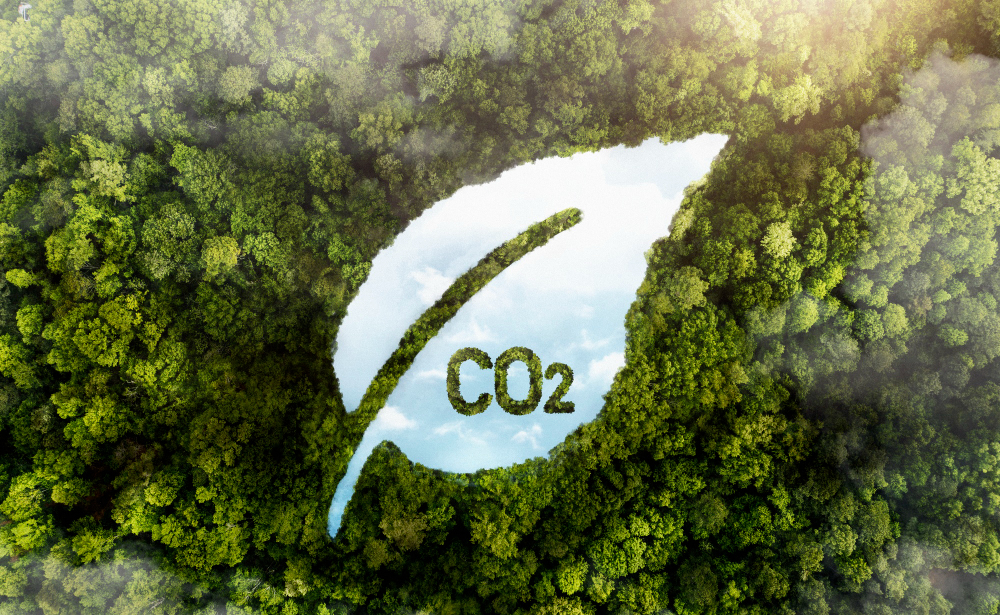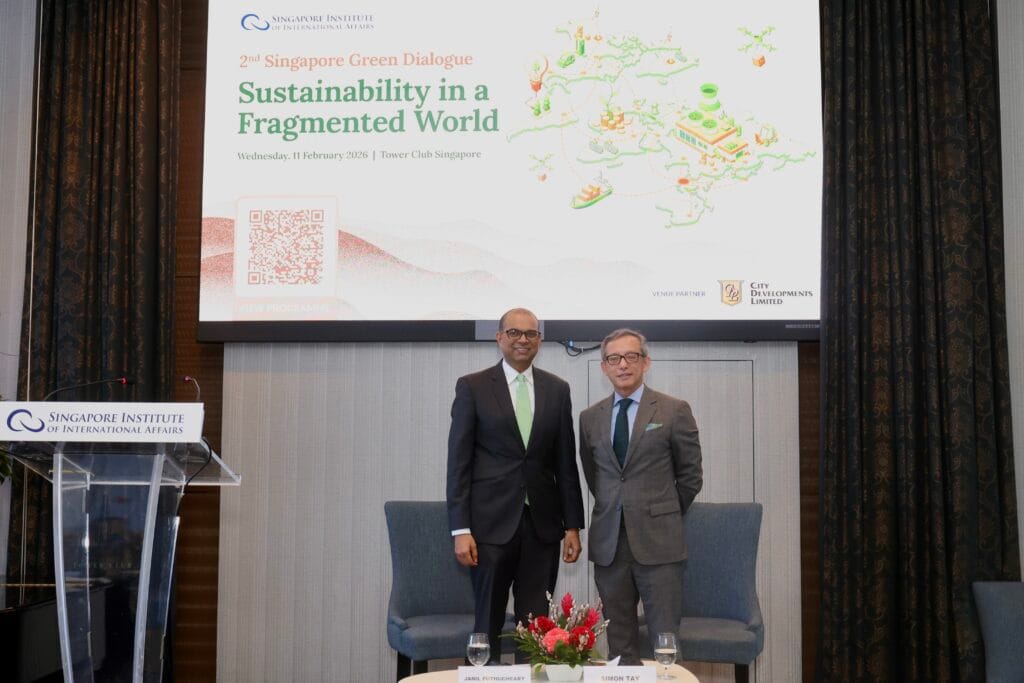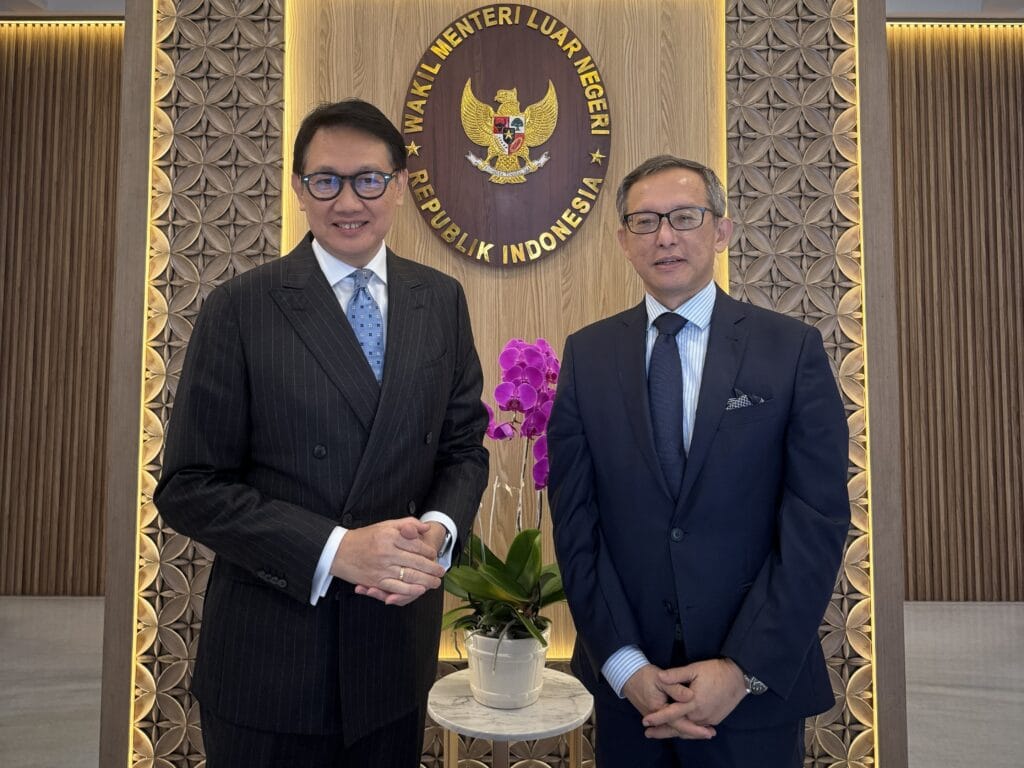Media Note on Singapore Parliamentary debate on green transition
Carbon pricing signals a country’s green
transition ambitions and trajectory
Singapore, 14 January 2022: “Carbon pricing instruments, such as carbon taxes, signal a country’s green transition ambitions and place it on a positive trajectory. Singapore’s motion to raise the carbon tax is thus a welcome move. If calibrated carefully, carbon taxes can not only accelerate adoption of sustainable technologies but also generate public revenue to finance further low-carbon development,” said Ms Meixi Gan, Deputy Director (Sustainability), Singapore Institute of International Affairs (SIIA).
“In tandem with domestic carbon pricing, Singapore needs to connect climate initiatives with the region. For instance, Singapore and other Southeast Asian countries can establish cross-border capacity building efforts to grow carbon trading in the region,” she added.
Associate Professor Simon Tay, Chairman, SIIA, said, “By leveraging individual capabilities of each country and promoting collaboration, we can raise collective ambition.”
“In this way, we can build an ‘ASEAN Climate Community’ with coordinated regional efforts on reducing emissions, leverage green economic opportunities and promote sustainable livelihoods. Regionalisation can be key to achieving efficiency and scale and, together with innovation, can mean that Singapore and the region can remain competitive and prosper economically even as we step up climate efforts,” he added.
These messages were emphasised in the SIIA’s report, ‘Greening the Road Ahead: Building a Collective ASEAN Climate Community’, which focuses on climate action strategies in ASEAN, and outlines some key areas for cooperation to decarbonise the overall economy while addressing development priorities. These include:
- Strengthening carbon pricing to accelerate low-carbon activities;
- Harmonising carbon policies to reduce carbon leakage from inter- and intra-regional trade;
- Building robust markets for verifiable and high-quality carbon credits; and
- Working with local communities to scale nature-based solutions with climate and other co-benefits.
***
The SIIA is able comment on decarbonisation efforts in Southeast Asia. The SIIA is a leading independent think tank based in Singapore which is part of the network of “track-2” think tanks in the region.
Associate Professor Tay is concurrently a tenured Associate Professor at the Faculty of Law, National University of Singapore. He has written and advised extensively on sustainability issues in ASEAN.
***
Media Contact
Siti Bazilah
Senior Executive (Policy & Media), Sustainability
Email: media@siiaonline.org
About the Singapore Institute of International Affairs
Insights ● Networks ● Access
Established in 1962, the Singapore Institute of International Affairs (SIIA) is a non-profit and independent think tank committed to producing policy analysis, fostering in-depth dialogues and bridging gaps between policymakers, private sector decision-makers and experts to shape public policy and social responses. Centred around ASEAN focused themes, the institute aims to deliver policy analysis in international affairs and on issues driving environmental sustainability. The SIIA has been consistently ranked as one of the leading think tanks in Southeast Asia and the Pacific, in the Global Go To Think Tank Index by the University of Pennsylvania. Since 2017, the SIIA was ranked the No. 1 independent think tank in Asia. It was also recognised as one of the top 50 think tanks globally, excluding the United States of America. For two consecutive years since 2019, it was recognised as the No. 1 think tank in South Asia, Southeast Asia, and the Pacific (excluding India). In 2020, it was also recognised as one of the think tanks with the best policy and institutional response to the COVID-19 pandemic.
About the SIIA’s Sustainability Programme
The SIIA’s Sustainability Programme was established in 1997 when it organised Singapore’s first haze dialogue with the Singapore Environment Council. Since then, the Sustainability Programme has evolved to address a range of sustainability issues ASEAN faces. The Programme continues to focus on the haze and resource sector, as well as using green finance and carbon financing as levers to advance supply chain sustainability and drive Southeast Asia’s “green recovery” from the COVID-19 pandemic.
As part of its Sustainability Programme, the SIIA facilitates dialogues between governments, private sector, academia and NGOs. One of the SIIA’s key platforms is its flagship event, the Singapore Dialogue on Sustainable World Resources (SDSWR), launched in 2014. The annual event attracts about 300 high-level participants to discuss best practices, new commitments and noteworthy cross-sector collaborations in ASEAN’s resource sector, to prevent and mitigate the recurrence of transboundary haze. A key research output by the Institute is the SIIA Haze Outlook report. Launched in 2019, the report serves as a risk assessment and predictive tool for countries in the region to determine the likelihood of a severe transboundary haze incident. In 2020, the SIIA released the report “ESG in Practice: A Closer Look at Sustainability in ASEAN’s Palm Oil and Pulpwood Sectors”, providing recommendations to align agribusiness and forestry stakeholders on environmental, social, and governance factors towards a long-term vision of sustainable production.




